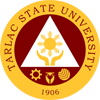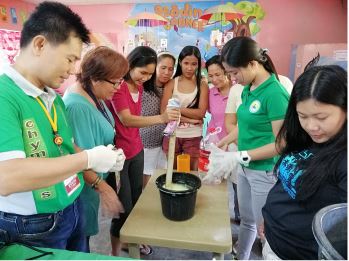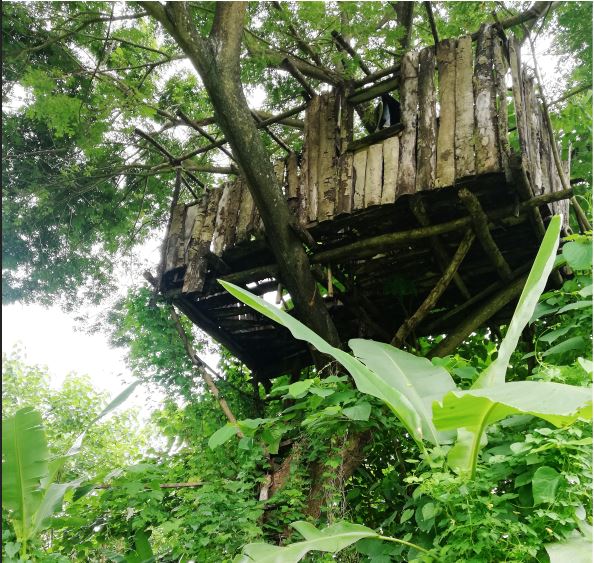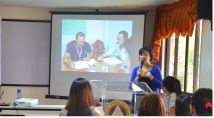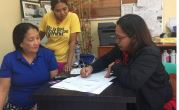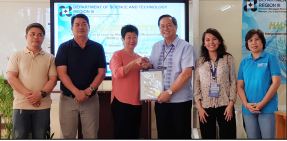College of Science
DOC’s ECI flagship programs
Erwin C. Mina, COS
The Department of Chemistry (DOC), as one of the dynamic departments in the College of Science, is mandated to deliver extension and community involvement (ECI) activities to the community, academic institutions and industries. Its services showcasing livelihood programs, professional training and consultancy services. The DOC Extension Unit is committed to serve varied clienteles in the province of Tarlac and beyond borders.
Apparently, there are four valuable ECI programs that DOC is offering. First, the Home Care Products which highlights the hands-on training of attendees in the technical know-how on making home care products such as powder detergent, fabric softener, liquid dishwashing soap, home-made beauty soap and others.
Second, the Chemistry of Medicinal Plants which showcases scientific and procedural skills in the collection, preparation, extraction and formulation of products such as ointment, syrup, tea and the like from scientifically proven plants with medicinal values that are abundant in the community. Third, the Chemical Laboratory services program which offers chemical analyses on water, soil and plants.
Fourth, the Professional Training of Department of Education Elementary and Secondary Teachers in the province of Tarlac which capacitates teachers in conducting science investigatory projects and laboratory skills in chemistry and allied sciences.
Furthermore, the ECI services were scheduled properly. Home Care Products run from November – March; Professional Training run from April – May; Chemistry of Medicinal Plants run from June – October; and Chemical Laboratory Services run from January – December respectively.
Environmental Science Department extends Rapid Biodiversity Assessment to the Indigenous Peoples in Capas, Tarlac
Bertrand Aldous L. Santillan, COS
Wesley S. Gagarin, COS
The Indigenous peoples (IPs) are guardians not only of cultures and traditions but of ecosystems. They commonly reside in areas having rich biodiversity with several ecological services, such as mountains, near rivers, and along coasts. They serve as guardians of these natural resources, cherishing and protecting them as ancestral inheritance which they pass on as heritage to their children. Their close attachment to their environment is basically due to their daily dependence on it for necessities, such as food and water, and as well as the provision of livelihood, medicines, and venues for spiritual beliefs.
In their traditional homelands, IPs inadvertently guard undisturbed habitats and rare species. However, IPs belong to the marginalized sectors of the society. They still receive discrimination and oppression despite the existence of national laws and policies dedicated for them, such as the Republic Act 8371, ‘Indigenous Peoples Rights Act (IPRA) of 1997,’ and international declarations, such as the ‘United Nations Declaration on the Rights of Indigenous Peoples (UNDRIP)’ in 2007. Aside from discrimination, the IPs are also confronted with land-grabbing, which includes state declarations of military reservations and land conversion to the IPs’ traditional homelands and resources (IDPRP-ST, 2013). Many ancestral domains have been and still being converted to corporate properties up this day, resulting to massive displacement of indigenous communities. Even though there exists a National Commission on Indigenous Peoples (NCIP) supposedly to empower them, however, the commission is being suspected of partiality since they have made the application for ancestral domains and land titles to legalize ownership of IPs tedious and difficult.
In Tarlac, a sub-group of Aeta Hungey that belong to the Negrito lineage, believed to be the first inhabitants in the Philippines and characterized by their distinct kulot (curly-haired), dark and short height features, live among the small straw-hat mountains (~300 m peak) that border the Tarlac and Zambales provinces. The sub-group is called Aeta Mahawang that trace their history as first inhabitants of Sitio Sapang Kawayan in Barangay Aranguren, Capas, Tarlac even long before the Spanish colonization colonization times. They are dwellers of Mount Dalin, one of the straw-hat mountains, where they tend farm animals and plant crops. However, this sub-group is one of the least documented tribes of the Aetas.
In 2016, the Bases Conversion Development Authority (BCDA), a government corporation created under Republic Act 7227, ‘Bases Conversion and Development Act of 1992,’ responsible for converting former military bases into economic zones or centers, started developing parts of Clark (Pampanga), Bamban (Tarlac), and Capas (Tarlac) into a New Clark City (NCC), touted as the country’s first “smart and green” and climate change-resilient city. With the accepted hosting of the country of the 30th Southeast Asian Games, development in the area which was chosen as the venue has been fast-tracked in time for the event in November 2019. However, along with this development is the immediate displacement of several Aeta community tribes in the area, which include the Aeta Mahawang. Stunned by the sudden development and fast-tracked construction of belt roads and building complexes, the IPs were left thriving to protect their ancestral rights on their homeland within their own capacities.
In May 2019, the Asosasyon ng Katutubong Mahawang Aeta (AKMA), Inc., an organization of Aeta Mahawang, requested for assistance from Tarlac State University (TSU) regarding the environmental impact assessment (EIA) of the NCC. The AKMA is convinced that there was a swift attempt to approve the project’s EIA, eventually neglecting the impact assessment among affected indigenous peoples and their environment. The AKMA disclosed that there was no prior consultation with the IPs regarding the project, and that they were deceived by the BCDA who disguised themselves as national censors conducting a population census. AKMA recalled that there were personal interviews conducted among their households in the sitio, but they were not asked anything about the NCC or even informed them of their imminent displacement.
An initial meeting conducted by the University Extension Services Office (UESO) with AKMA and invited College of Science (COS), Department of Environmental Science (DES) faculty arrived at conducting a socio-ecological impact assessment (SEIA) to serve as second opinion from the approved EIA of the BCDA. Due to the enormous scale of the development project (NCC has a total land area of 9,450 hectares) and the limited staffing and budgetary resources of the university, it was decided to prioritize first the biological component of the EIA. It was pointed out by the DES that around the world, large-scale projects have been shelved when highly threatened and narrowly endemic species have been found to occur within the area where the project is ongoing. Thus, the DES suggested to AKMA that a biodiversity assessment be conducted in their area. Native endemic species, especially endangered, if found can be used as argument to halt the BCDA from encroaching upon their ancestral land and prevent their displacement.
This extension project is the first time in the university as it was first time that a biodiversity assessment approach was used in an extension activity. This novel extension project approach can be replicated by TSU in their extension work with other indigenous peoples in the province or region that have similar displacement issues. It thus contributes to the strengthening of the regional center extension program of the university for indigenous peoples. Other extension providers that have or are planning to have similar projects or program can also gain insight from this extension experience.
Eight AKMA members joined the team and served as guides in selecting areas that were subjected in a rapid biodiversity assessment. It was briefly explained to them the occurrences and prevalence of non-native species such as the Gmelina arborea and cogon grass within the forest. It was also elucidated to the AKMA leaders that the presence of grasslands may significantly alter the structure of the forest.
This intervention has resulted to the identification of various floral and faunal species in the ancestral domain of the AKMA. Using the Rapid Biodiversity Assessment Approach (BIORAP), endemic plant species such as Pungapong (Amorphophallus paeoniifolius), Antipolo (Artocarpus blancoi), Banaba (Lagerstroemia speciose), Kaimito (Chrysophyllum cainito), Narra (Pterocarpus indicus), and Apitong (Dipterocarpus grandifloras) were found in the area. In terms of the endemic faunal species, Common Grass Yellow Butterfly (Eurema hecabe), Luzon Dart Grass Butterfly (Taractrocera luzonensis), Glassy Tiger Butterfly (Parantica luzonensis), brown sailor spider (Neoscona nautica), Black-nest swiftlet (Aerodramus maximus), and Greater musky fruit bats (Ptenochirus jagori) were thriving within the boundaries of the ancestral domain of the AKMA and may signify that it is worthy of conservation and protection.
Review Class on Math and Science for DOST-SEI Undergraduate Scholarship Applicants
San Jose, Tarlac
September 21 – October 14, 2019
|
Beneficiary |
Villa Aglipay High School and Iba High School |
|
Type of Service |
Knowledge Transfer |
|
Extension Service Providers |
Bertrand Aldous L. Santillan (Trainer) Nancy L. Mati (Trainer) |
|
Participants |
48 |
|
Hours |
48 |
FT services create buzz in micro food processors of Tarlac
Jay Ann L. Pablo, UESO
Since all businesses involved in the importation, exportation, and distribution of food and drinks in the Philippines, they need to obtain license to operate (LTO) and a certificate of product registration (CPR) from the Food and Drug Administration (FDA). As required by regulation implemented by FDA, no food products can be sold for public consumption from food manufacturers, traders and re-packers which are not registered to FDA. However, the actual scenario portraits that FDA-LTO registration is mostly availed by small and medium food enterprises only and least by micro food enterprises who significantly comprised the food industry in the Philippines.
Then, the Food Technology (FT) Department of the College of Science (COS) and University Extension Services Office (UESO) came up with the idea of "FDA-LTO Consultancy Project” for the selected partner food micro enterprises in Tarlac City. It generally aims to guide and assist them in complying with the legal requirements of the Department of Health (DOH) and FDA on LTO registration through multi model teaching approach.
Five (5) micro food enterprises in Tarlac were assisted, namely, HRTC Food Ventures in Victoria, Danilla Wines in Gerona, Daytao’s Native Cakes in San Jose, NL Calara’s Food and Beverages and Labor of Love Products are both in Concepcion. They specialized in making spreads, beverages, and delicacies.
During the implementation of the project, eight (8) series of sessions were conducted starting month of March to October 2018. They were provided hands on learning experience by the food technologists of the university, namely, Dr. Lea B. Milan, Aljon N. Lusong, Leah T. Matias, Katherine A. Apolonio, Kristine Mae G. Pagala, and Abegail F. Feliciano in the on-line application process, preparation and implementation of the requirements for LTO certification but not limited to Sanitation Standard Operating Procedures (SSOP), Quality Control Standard Operating Procedures (QCSOP) and Production Standard Operating Procedures (PSOP). It includes the provision of short lectures, write shops and activities, firm visits, coaching and mentoring sessions and on-line and one-on-one consultancy activity.
Because of the performance of the food technologists of the university, another seven (7) micro food enterprises sought assistance, namely, Lights and Salt in Paniqui, Salinas in Ramos, Teanapa in Amucao, and S & A Foods, Macapinlac Inc., New Star Bakeshop, and Guedez Delicacies in Tarlac City. They specialized in making condiments, delicacies and teas.
Government agencies such as Department of Trade and Industry (DTI) and Department of Science and Technology (DOST) commended the Tarlac State University specifically the FT Department for conceptualizing and implementing the project, because it complements their programs.
Extension Support Services for MSMEs of Region 3
Dr. Lea B. Milan, UESO
For the second time around, the Faculty Members of Food Technology Department of Tarlac State University serve as Consultants for the Implementation of the Food Safety Consultancy for MSMEs of Region 3 of Department of Science and Technology (DOST) Regional Office.
The project is basically a provision of technical consultancy services for fifteen (15) selected micro and small food enterprises of Region 3 in reference to the applicable requirements of AO 153 s. 2004 Current Good Manufacturing Practices for Food Manufacturer. This is to prepare the partner-beneficiaries for their application for License to Operate to Food and Drug Administration.
It also aims to address technical problems of partner-beneficiaries hence improving their food safety implementation. The consultancy services provided includes the assessment of the existing facilities and food safety system of the partner-beneficiaries; the provision of short and long-term recommendations to address the findings from the assessment; provision of coaching for the implementation of the recommendations; and the conduct of monitoring of compliance and implementation of recommendations (post). Findings and recommendations were packaged into inception and final firm level reports submitted to partner-beneficiaries through DOST-3 and DOST Provincial Science and Technology Centers.
The partner-beneficiaries includes processors of ice cream from Tarlac, turmeric tea from Nueva Ecija; banana chips from Aurora; ready to drink fruitjuice, canned fish, peanut butter and nata de coco from Bulacan; ice cream, peanut butter, breads and cakes and processed meat from Pampanga; dairy products from Zambales; and fish sauce and breads from Bataan. The project runs from September 2018 to March 2019.
MMHCB awards Halal Certification to Tarlac SMEs assisted by Food Technology Department
Jay Ann L. Pablo, UESO
The Department of Science and Technology and Provincial Government of Tarlac tapped the Tarlac State University particularly the Food Technology Department of the College of Science to provide technical assistance in Halal Certification Audit to the seven small and medium enterprises (SMEs) in the Province of Tarlac.
On October 25, 2019 in City of San Fernand, Pampanga, the Bea’s Homemade Peanut Butter, RP Corpus Sales Enterprises, Potter’s Hand Processed Food, La Paz Prime Foods Corporations, JSJ Goat Farm, Urdu Restaurant and Bakeshop, and Upventures Corporation-Eat Special Cuisine received their certifications from the Muslim Mindanao Halal Certification Board, a non-government and non-profit organization assuring Halalness of food and nonfood products.
The certification guaranteed that the products made are compliant with the Islamic Dietary Laws. Moreover, the facilities are assured of cleanliness, safety and strict compliance to the Guidelines of Islamic Law which attested by the Halal Assurance Officers. The abovementioned SMEs could now showcase and market products in the upcoming South East Asian Games at the New Clark City.
Technical Assistance and Consultancy on the Preparation of FDA-LTO Online Registration of VLDFR under the Village-Level-Farm-Focused Enterprise Development Project
San Fernando, Pampanga
September 23, 2019
|
Beneficiary |
DAR Pampanga |
|
Type of Service |
Professional Assistance |
|
Extension Service Providers |
Mary Katherine A. Apolonio (Consultant) Dr. Lea B. Milan (Consultant) Aljon N. Lusong (Consultant) |
|
Participants |
34 |
|
Hours |
24 |
Seminar-Workshop on Sensory Evaluation and Statistical Analysis on Food Science
Paraiso, Tarlac City
December 10- December 12, 2019
|
Beneficiary |
Central Luzon Integrated Agrciulture Research Center for Lowland Development |
|
Type of Service |
Professional Assistance |
|
Extension Service Providers |
Mary Katherine A. Apolonio (Resource Speaker, Facilitator) Kristine Mae G. Pagala (Resource Speaker, Facilitator) Estrella B. Pagco (Resource Speaker, Facilitator) |
|
Participants |
34 |
|
Hours |
24 |
MATHEMATICS DEPARTMENT
Seminar-Workshop on Action Research
San Manuel Elementary School
November 11, 2019
|
Beneficiary |
DepEd Tarlac City -Tarlac East District |
|
Type of Service |
Continuing Education |
|
Extension Service Providers |
Estrella B. Pagco (Resource Speaker) Willie I. Alagano (Resource Speaker) |
|
Participants |
40 |
|
Hours |
8 |
Seminar-Workshop on Action Research
Villa Aglipay National High School
October 21, 2019
|
Beneficiary |
Villa Aglipay National High School |
|
Type of Service |
Continuing Education |
|
Extension Service Providers |
Estrella B. Pagco (Resource Speaker) Willie I. Alagano (Resource Speaker) |
|
Participants |
44 |
|
Hours |
8 |
NURSING DEPARTMENT
Awareness Campaign Seminar on Teenage Pregnancy and HIV
Cardona, Gerona, Tarlac
March 18, 2019
|
Beneficiary |
Cardona National High School |
|
Type of Service |
Knowledge Transfer |
|
Extension Service Providers |
Mary Jane N. Rigor (Resource Speaker) Adora N. Obregon (Resource Speaker) Lorna C. Gamis (Resource Speaker) Maria Susan Z. Maglaqui (Resource Speaker) |
|
Participants |
188 |
|
Hours |
3 |
Awareness Campaign Seminar on Teenage Pregnancy and HIV
Gerona, Tarlac
September 16, 2019
|
Beneficiary |
Buenlag National High School |
|
Type of Service |
Knowledge Transfer |
|
Extension Service Providers |
Mary Jane N. Rigor (Resource Speaker) Adora N. Obregon (Resource Speaker) Lorna C. Gamis (Resource Speaker) Maria Susan Z. Maglaqui (Resource Speaker) Lucila O. Sunga (Resource Speaker) |
|
Participants |
290 |
|
Hours |
4 |
